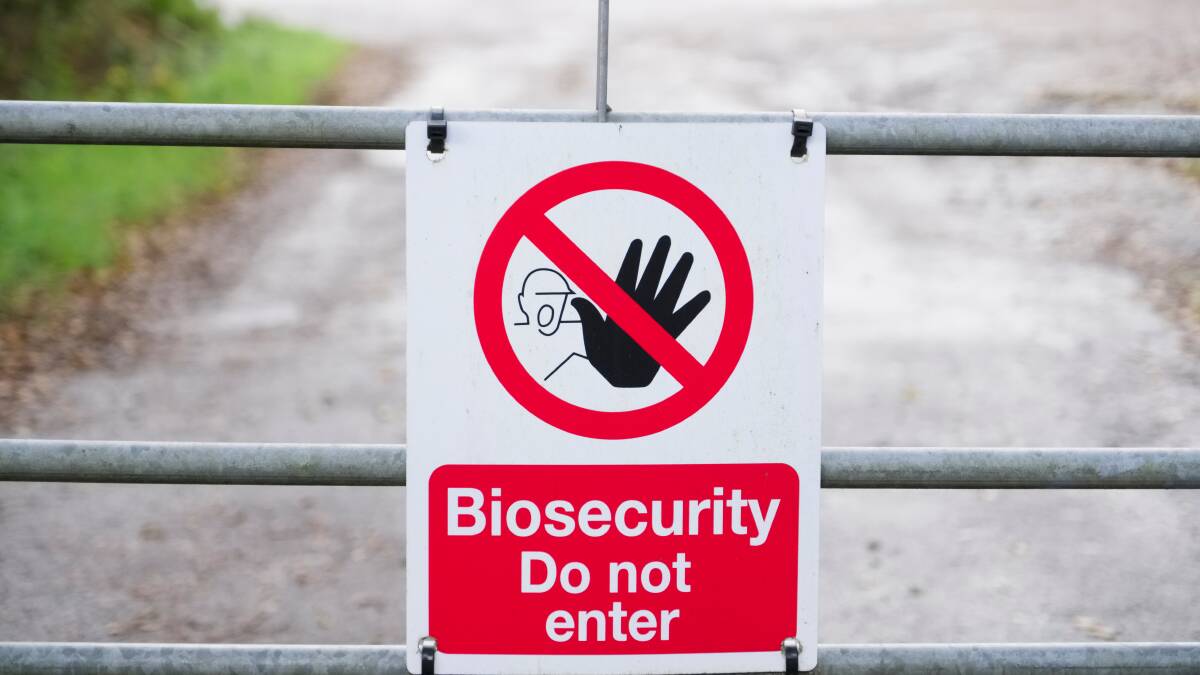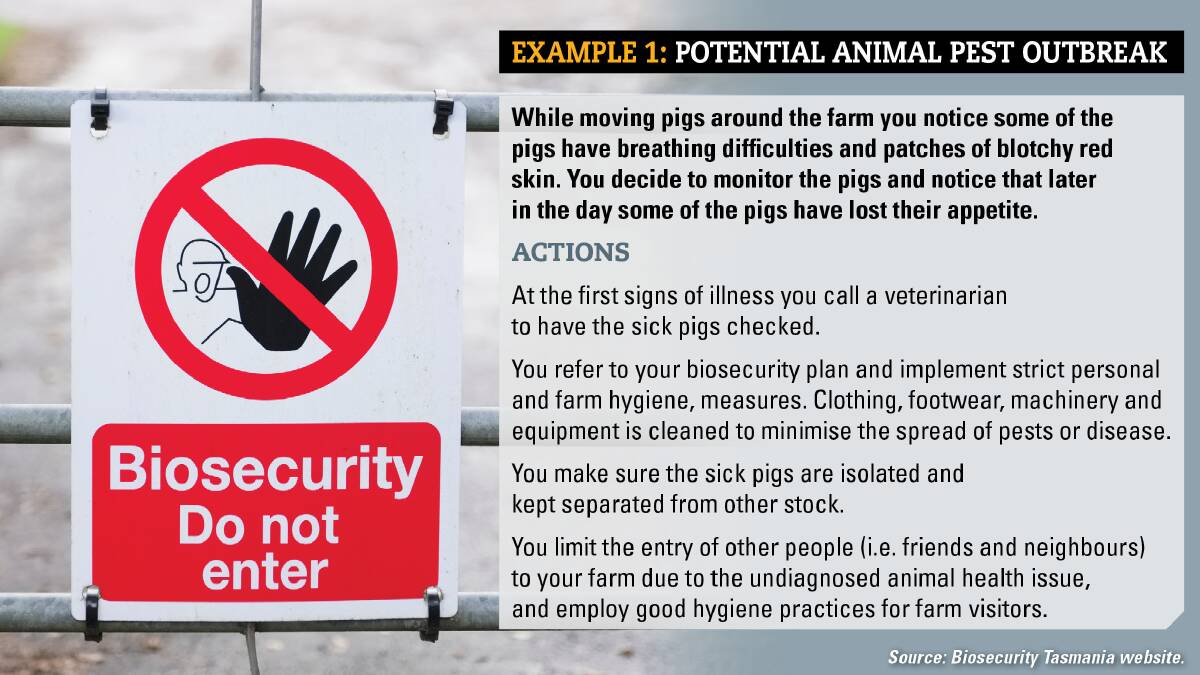
Farmers are well-versed in their knowledge and understanding of biosecurity, but there's a new standard in town.
Subscribe now for unlimited access.
$0/
(min cost $0)
or signup to continue reading
The General Biosecurity Duty is a statuatory "duty of care" that came into effect last month, and will help to provide education and information to farmers, rural landowners and the general public.
Biosecurity Tasmania has started an awareness campaign about the GBD and industry collaboration manager Ryan Wilkinson has sat down with The Examiner to discuss how it works.
CJ: What is the general biosecurity duty?
RW: The GBD will operate as a statutory "duty of care" in respect to biosecurity. This means that a person or business has to take all reasonable and practical measures to prevent, eliminate, or minimise biosecurity risks.
The GBD applies if that person or business knows, or it is reasonable to expect a person to know, that a risk may be presented by any biosecurity matter, carrier or dealing they are involved with.
CJ: How will the GBD be enforced? Or is it more like a set of guidelines?
RW: The GBD will be enforced like any other legislative requirements that are administered by Biosecurity Tasmania. That is through a compliance framework that focuses on effective community engagement supported by education and support, with escalating compliance and enforcement actions if the circumstance warrant it. The ways in which an individual or organisation can meet their GBD obligations are broad and depend on the nature of the biosecurity risk and what is considered 'reasonable' in terms of management options.
A primary focus for Biosecurity Tasmania will be the education of stakeholders and encouraging voluntary compliance with the GBD.
However, a significant breach of the GBD that is intentional or reckless will be treated as an aggravated offence that may carry a significant penalty under the Act.
CJ: What is the desired outcome from this public awareness campaign? Why do you want people to know about the GBD?
RW: An effective biosecurity system relies on everyone playing a role to help minimise the risk and the GBD emphasises the concept of shared responsibility when it comes to biosecurity.
For most biosecurity stakeholders, the introduction of the GBD will not change the way they go about their daily business or recreational activities, as they already have a good understanding of our biosecurity requirements and recognise the need to have good systems and processes in place to manage their biosecurity risk.\
CJ: How does it work with other legislation?

RW: Specific legal requirements relating to biosecurity that are in official guidelines, policies, codes and legislation (including legislation other than the Biosecurity Act) are recognised under the new Act as "specified biosecurity requirements" which are taken to form part of the GBD.
If you follow the official guidelines, policies, codes and existing legislative requirements then the GBD is likely to be met. However, if a person or businesses negligently or knowingly breaches them, then this will potentially be a breach of the GBD. Where there is not an existing guideline, policy, code or legislative compliance but there is a biosecurity risk then the GBD can apply, providing an extra level of biosecurity protection.
CJ: What does the GBD mean for the average Tasmanian?
RW: The introduction of the GBD does not mean that people have to know everything about biosecurity, however they do need to know about the biosecurity risks that apply to their specific industry, business, work environment or pastimes - and how to manage or minimise those risks to the best of their ability.
Hopefully, through ongoing education about the GBD we can develop a greater awareness of biosecurity throughout the Tasmanian community.
So for the average Tasmanian who may be undertaking home gardening or recreational activities (for example), the intent is that they will be able to recognise the role that they have to play in a strong biosecurity system and how important their actions can be in terms of protecting our agriculture and environment.
Biosecurity is a shared responsibility.
CJ: Will tourists be expected to know Tasmanian biosecurity laws?
RW: Tasmania already has strict requirements in place about what you can and can't bring into Tasmania. The introduction of the GBD will not change that.
However, during their stay here in Tasmania, the GBD will apply. For example - travellers should adhere to any specific biosecurity instructions provide by tourism and agricultural operators as they travel around the state.
For example, there are guidelines with regard to mountain bike tourists, such as making sure they clean their bikes before and after leaving an area and to clean up after themselves.
MTB tourists often already know these things, but the GBD will make it clearer so that tourists can take reasonable steps to adhere to the guidelines and legislation.

CJ: Biosecurity is often a thing farmers have to contend with, with the GBD change the way they handle biosecurity on their farms?
RW: The introduction of the GBD will not change the situation much for those farmers who are already doing a good job in terms of taking reasonable steps to understand and manage their on-farm biosecurity.
CJ: What prompted Biosecurity Tasmania to develop the GBD?
RW: The GBD was developed to emphasise and formalise the important concept of shared responsibility within the development of the Biosecurity Act 2019.
The idea of a GBD (or similar) has been incorporated into legislation in two other Australian states, Queensland in 2014 and New South Wales in 2015.
In QLD, the General Biosecurity Obligation (GBO) means that, everyone is responsible for managing biosecurity risks under their control.
In NSW, the GBD provides that as far as is reasonably practicable, biosecurity risks encountered are prevented, eliminated or minimised.


